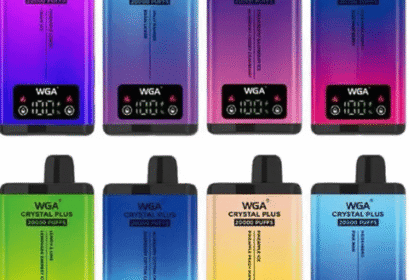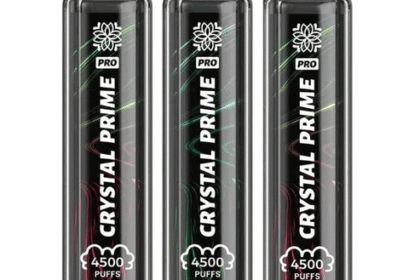India Solar Inverter Market Size, Trends & Forecast 2025–2033
The India Solar Inverter Market is set to witness significant growth, expanding from USD 682.86 million in 2024 to USD 1,632.69 million by 2033, registering a strong CAGR of 10.17% during the forecast period. This growth is driven by increasing solar energy adoption, government-led policy support, declining solar component costs, and innovations in hybrid and smart inverter technologies. With energy storage integration becoming more prominent and India’s aggressive renewable energy targets, the solar inverter market is emerging as a cornerstone of the country’s green energy transformation.
Want pricing & detailed TOC? Enter your email:https://www.renub.com/request-sample-page.php?gturl=india-solar-inverter-market-p.php
Market Overview: Driving the Solar Transition
A solar inverter is the central nervous system of any photovoltaic (PV) system, converting the direct current (DC) generated by solar panels into alternating current (AC), suitable for household or grid use. Solar inverters also manage system voltage, maximize energy harvest, and ensure safety during power fluctuations or outages. In India, where solar capacity is expanding at a historic pace, the demand for efficient and scalable inverter technologies is intensifying.
The country’s solar consumption grew from 0.02 exajoules (EJ) in 2012 to 0.64 EJ in 2021, supported by initiatives like the National Solar Mission and ongoing government subsidies. Central inverters, commonly used in large utility-scale solar plants, dominate the landscape, with sizes ranging from 100 kW to 100 MW. These inverters are typically grid-tied and form the backbone of large-scale solar installations.
India’s long-term renewable goal—to achieve 500 GW of non-fossil capacity by 2030—continues to push the demand for solar infrastructure, including advanced inverter solutions.
Key Growth Drivers
- Government Initiatives and Policy Backing
India’s robust policy support is a central catalyst for market growth. Programs like the Grid-Connected Rooftop Solar Scheme, PM-KUSUM, and the National Solar Mission provide financial support, tax incentives, and net metering benefits to encourage widespread solar adoption.
Notable goals include:
- 100 GW solar capacity under India’s national targets.
- Subsidies up to 40% for residential rooftop solar systems.
- State-specific policies such as Gujarat’s SURYA scheme and Tamil Nadu’s solar policy.
These policies enhance affordability and spur investments, thereby increasing the demand for reliable solar inverters across residential, commercial, and utility-scale sectors.
- Declining Costs of Solar Equipment
A sharp decline in the price of solar panels and inverters, due to mass manufacturing, improved supply chain logistics, and economies of scale, has brought solar energy within reach for millions of Indian consumers. As capital costs fall, small and mid-size installations—especially in urban and semi-urban areas—are rising, further boosting inverter sales.
- Inverter prices have dropped by over 30% in the last five years.
- Rooftop solar systems have become 20–25% cheaper, making them attractive for C&I customers.
- More affordable hybrid and microinverters are increasingly adopted in off-grid and rural segments.
- Technological Advancements
India is witnessing a surge in demand for intelligent solar inverters equipped with:
- Remote diagnostics
- Real-time monitoring
- Hybrid configurations that support both solar and battery inputs
- Smart-grid compatibility for seamless power export
These innovations are particularly important in regions with unreliable grid supply, enabling homes and businesses to maintain energy autonomy. Energy storage-integrated inverters are also growing in popularity, allowing users to store solar energy for use during the night or outages.
Key Market Challenges
- Skilled Workforce Shortage
India’s solar industry needs a qualified workforce to scale installations and maintain systems. According to estimates, 1.2 million additional workers are needed by 2027 across the clean energy sector. Currently:
- There is a shortage of certified technicians and inverter specialists.
- Delays in project implementation and performance issues are common in Tier 2 and Tier 3 regions due to lack of trained manpower.
This gap underscores the need for dedicated training programs and public-private partnerships to ensure quality installations and long-term system reliability.
- Supply Chain Constraints
India’s over-reliance on imports for key inverter components, especially from China, exposes the market to global disruptions. Common issues include:
- Delayed shipments and customs clearance bottlenecks
- Rising logistics costs due to fuel price volatility
- Import duty fluctuations affecting overall solar project budgets
To combat this, initiatives like PLI (Production Linked Incentive) schemes are being launched to boost domestic solar inverter manufacturing, but substantial progress is still required.
Regional Analysis
North India
With massive solar parks such as Bhadla, Pokhran-Phalodi, and Mansa, North India is a dominant hub for utility-scale solar installations. The region benefits from:
- High solar irradiation
- Large land banks
- Strong policy backing from states like Rajasthan and Punjab
Inverter demand is primarily for central and string inverters that support megawatt-scale projects. The deployment of smart inverters in rooftop projects is also gaining momentum.
South India
States like Karnataka, Tamil Nadu, Andhra Pradesh, and Kerala are leading in solar adoption, thanks to:
- Favorable climate
- High power tariffs driving solar ROI
- Projects like Pavagada Solar Park and Arunodaya Scheme
Inverter demand here is diverse—ranging from micro and hybrid inverters for residential use to large-scale string inverters for C&I applications. High literacy and tech-savviness also accelerate smart inverter uptake.
West India
West India, particularly Rajasthan, Gujarat, and Maharashtra, is seeing rapid expansion due to:
- Rajasthan’s 18 GW installed solar capacity
- Gujarat’s leadership in rooftop installations
- Maharashtra’s push for agro-solar adoption
Inverters are in high demand for both grid-connected and off-grid systems. String and hybrid inverters dominate urban centers, while rural areas prefer affordable models for standalone setups.
Market Segmentation
By Inverter Type:
- Central Inverters
- String Inverters
- Micro Inverters
By Application:
- Residential
- Commercial & Industrial (C&I)
- Utility Scale
By Region:
- North India
- South India
- East India
- West India
Competitive Landscape
The India Solar Inverter Market is highly competitive, with both global giants and domestic players vying for market share. Key players are evaluated based on:
- Company Overview
- Key Personnel
- Strategic Initiatives
- Financial Performance
Leading Players Include:
- Schneider Electric SE
- Siemens AG
- Mitsubishi Electric Corporation
- ABB Ltd
- SMA Solar Technology AG
- Delta Electronics, Inc.
- Fronius International GmbH
- Sungrow Power Supply Co., Ltd.
These companies are focusing on R&D, localization strategies, product diversification, and strategic partnerships to strengthen their presence in India’s booming solar market.
New Publish Blogs:
Top Plug-in Hybrid Electric Vehicle (PHEV) Companies in 2025
New Publish Report:
- South Korea Salmon Market Size and Share Analysis – Growth Trends and Forecast Report 2025-2033
- South Korea Rice Market Size and Share Analysis – Growth Trends and Forecast Report 2025-2033
- South Africa Rice Market Size and Share Analysis – Growth Trends and Forecast Report 2025-2033
Conclusion
India’s solar inverter market stands at a pivotal point, driven by ambitious renewable targets, policy support, and technological innovation. As the country intensifies its shift toward energy independence and sustainability, solar inverters will play a central role in enabling efficient, stable, and smart power solutions. Despite challenges in workforce readiness and supply chain limitations, the market outlook remains highly optimistic, with opportunities across residential, commercial, and utility sectors.
] About Renub Research
Renub Research is a leading market research and consulting company offering management consulting and in-depth industry analysis across various sectors. With a global perspective and a local understanding, Renub Research delivers insights that matter.
About the Company:
Renub Research is a Market Research and Consulting Company. We have more than 15 years of experience especially in international Business-to-Business Researches, Surveys and Consulting. We provide a wide range of business research solutions that helps companies in making better business decisions. We partner with clients in all sectors and regions to identify their highest-value opportunities, address their most critical challenges, and transform their businesses. Our wide clientele comprises major players in Healthcare, Travel and Tourism, Food Beverages, Power Energy, Information Technology, Telecom Internet, Chemical, Logistics Automotive, Consumer Goods Retail, Building, and Construction, Agriculture. Our core team is comprised of experienced people holding graduate, postgraduate, and Ph.D. degrees in Finance, Marketing, Human Resource, Bio-Technology, Medicine, Information Technology, Environmental Science, and many more.
Media Contact:
Company Name: Renub Research
Contact Person: Rajat Gupta, Marketing Manager
Phone No: +91-120-421-9822 (IND) | +1-478-202-3244 (USA)
Email: mailto:rajat@renub.com





